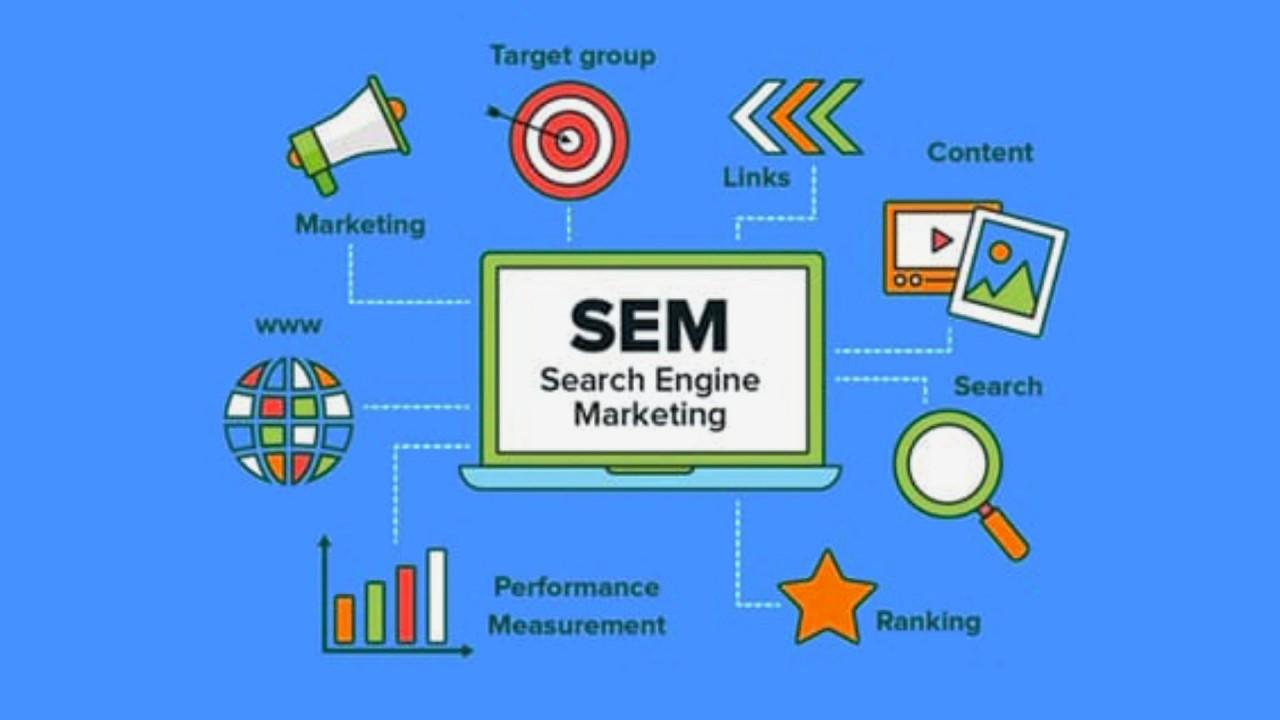In the rapidly evolving landscape of digital marketing, businesses are constantly seeking effective ways to enhance their online visibility and drive targeted traffic to their websites. Search Engine Marketing (SEM) has emerged as a cornerstone strategy in achieving these goals. This article will explore the intricacies of SEM, its key components, and its pivotal role in shaping successful digital marketing campaigns.
Understanding SEM:
SEM, often used interchangeably with Pay-Per-Click (PPC) advertising, is a digital marketing approach that focuses on promoting websites by increasing their visibility in search engine results pages (SERPs) through paid advertising. Unlike Search Engine Optimization (SEO), which involves optimizing a website to rank organically in search results, SEM relies on paid advertising to secure prominent positions in search engine listings.
Key Components of SEM:
-
Keyword Research: At the heart of SEM lies meticulous keyword research. Identifying relevant and high-performing keywords ensures that ads are displayed to users actively searching for products or services offered by a business. SEM professionals use various tools to analyze search volumes, competition, and user intent to refine their keyword strategies.
-
Ad Creation: Compelling and relevant ad copy is crucial for SEM success. Advertisers must create engaging and persuasive advertisements that not only align with users’ search queries but also encourage them to click through to the website. Ad formats may include text ads, display ads, and product listings, depending on the platform.
-
Bid Management: SEM operates on a bidding system, where advertisers compete for ad placements based on the keywords they target. Bid management involves strategically setting bids for keywords to secure optimal ad positions. Advertisers must strike a balance between bid amounts, ad relevance, and landing page quality to achieve cost-effective results.
-
Landing Page Optimization: A well-crafted ad is only part of the equation; the landing page plays a crucial role in converting clicks into desired actions. SEM professionals focus on optimizing landing pages for user experience, relevance, and conversion rate optimization (CRO) to maximize the return on advertising investment.
-
Analytics and Reporting: Data is the backbone of SEM. Marketers leverage analytics tools to track the performance of their campaigns in real-time. Key metrics, such as click-through rate (CTR), conversion rate, and return on ad spend (ROAS), provide valuable insights for refining strategies and optimizing future campaigns.
Benefits of SEM in Digital Marketing:
-
Instant Visibility: Unlike organic search efforts, which may take time to yield results, SEM offers instant visibility. Advertisers can have their ads displayed at the top of search results as soon as their campaigns go live, ensuring immediate exposure to potential customers.
-
Targeted Advertising: SEM allows for precise targeting based on factors such as location, device, demographics, and user behavior. This granularity ensures that ads reach the most relevant audience, increasing the likelihood of conversions.
-
Measurable ROI: SEM provides a highly measurable ROI. Advertisers can track and analyze performance metrics in real-time, allowing for data-driven decision-making and continuous optimization to achieve the best possible results.
-
Flexibility and Control: SEM campaigns are highly flexible, allowing advertisers to adjust budgets, targeting parameters, and ad creatives on the fly. This adaptability ensures that campaigns can be fine-tuned to align with changing business goals and market dynamics.
Conclusion:
In the digital marketing landscape, where competition for online visibility is fierce, SEM stands out as a powerful and results-driven strategy. By leveraging paid advertising, businesses can enhance their online presence, attract targeted traffic, and achieve measurable success. As technology continues to advance, SEM will remain a cornerstone of digital marketing strategies, empowering businesses to navigate the complexities of the online marketplace and drive meaningful results.
Read More: SEM in Digital Marketing



